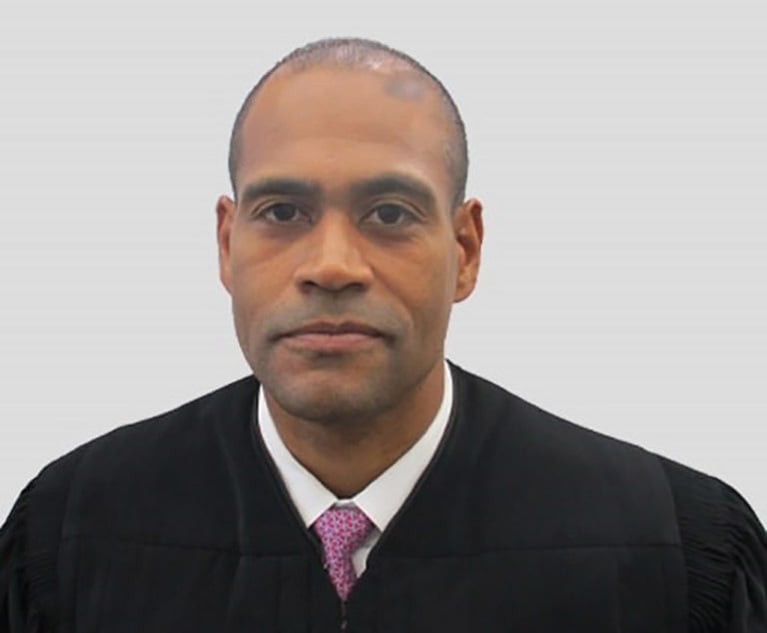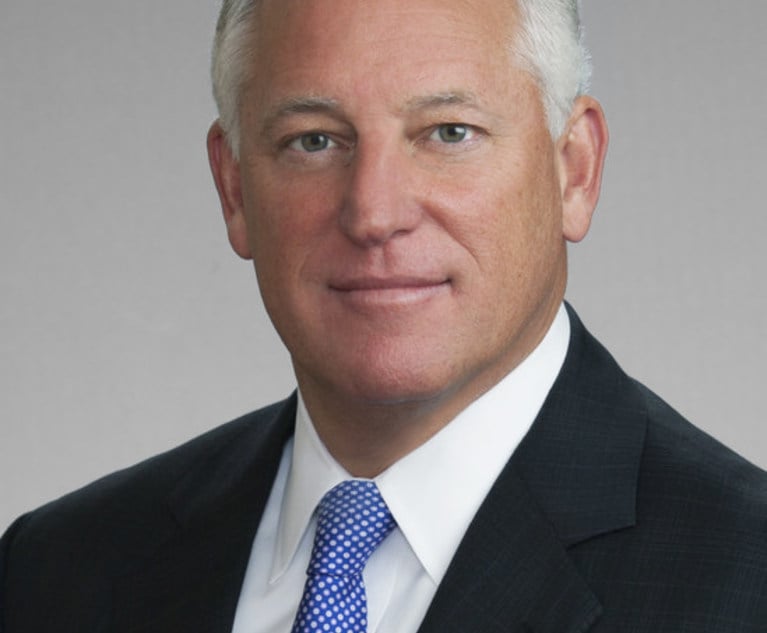 University of Texas in Austin, Texas.
University of Texas in Austin, Texas.Sovereign Immunity Gets UT Only so Far in Patent Dispute Over Cancer Treatment
A 2-1 majority of the Federal Circuit says the university cannot be hauled into court against its will, even as a plaintiff. But a different 2-1 majority said UT's licensee can go ahead and sue on its own. They also said it's time for the Supreme Court to reconsider key precedents on sovereign immunity and patent infringement.
July 27, 2020 at 04:14 PM
4 minute read
The U.S. Court of Appeals for the Federal Circuit has teed up another opportunity for the Supreme Court to ponder sovereign immunity and patent laws.
This time, the question is whether a state can be dragged against its will into federal court—not as a defendant, but as a plaintiff by a licensee who needs its cooperation to bring a patent infringement suit.
The court answered no, by a 2-1 vote. It further ruled that the licensee can proceed without the University of Texas, over the state's objection. That too was decided 2-1, albeit a different lineup.
Along the way, Judges Kathleen O'Malley and Pauline Newman encouraged the U.S. Supreme Court to reconsider a pair of 1999 precedents. Abrogating Florida Prepaid v. College Savings Bank "I suspect would be welcomed by many," O'Malley wrote in a footnote.
Judge Richard Taranto, meanwhile, said the majority was misconstruing a more recent Supreme Court sovereign immunity opinion and suggested that the court has created a circuit split on its proper interpretation.
The roots of Gensetix v. The Board of Regents of the University of Texas System are in the decision of UT to license a cancer treatment to Gensetix but then refuse to join in a suit against alleged infringers at the Baylor College of Medicine.
When a patent is jointly owned, both owners generally must participate for the suit to go forward. The Supreme Court has said that a patent holder can be involuntarily joined to a lawsuit if there's no other way of securing justice for a licensee. But U.S. District Judge Andrew Hanen of Houston ruled, and the Federal Circuit agreed, that UT's Eleventh Amendment immunity trumps that principle.
Gensetix had argued that while sovereign immunity shields states from being sued—no case has ever held that it also prevents them from being hauled into court as plaintiffs.
Now there's one.
"It is immaterial that there are no claims against UT, or that UT is named an involuntary plaintiff rather than an involuntary defendant," O'Malley wrote. "The Eleventh Amendment serves to prevent 'the indignity of subjecting a State to the coercive process of judicial tribunals' against its will."
Newman dissented. "Just as the State must pay its bills, it also must comply with its contracts," she wrote. She quoted Justice Stephen Breyer's dissent in one of the Florida Prepaid cases, which held that states can invoke sovereign immunity to escape being sued for patent infringement. Breyer reiterated his critique earlier this year but acknowledged "that my longstanding view has not carried the day."
But Gensetix and partner Paul Skiermont of Skiermont Derby still come away with the win, because O'Malley and Newman ruled that Gensetix is free to proceed against Baylor without UT as a co-plaintiff. "Gensetix is fully able (and willing) to step into UT's shoes and protect the absent sovereign's interests in the validity of the patents-in-suit," she wrote.
In dissent Taranto pointed to Republic of Philippines v. Pimentel, a 2008 case in which the Supreme Court ruled that an action must be dismissed if a sovereign makes a nonfrivolous assertion that its interests could be harmed by proceeding in its absence. Because UT reasonably argues that its patent could be narrowed or invalidated if Gensetix proceeds without it, the case must be dismissed, Taranto wrote.
He noted that the Ninth Circuit has cited "'a wall of authority" in favor of dismissing actions in which a necessary party cannot be joined due to tribal sovereign immunity."
Gensetix also had counsel from Schiff Hardin. UT was represented by Vinson & Elkins. Baker Botts represented Baylor.
The Federal Circuit has ruled in the last couple of years that sovereign immunity does not shield state universities or Native American tribes from administrative patent validity challenges at the USPTO. The Supreme Court declined to review either decision.
This content has been archived. It is available through our partners, LexisNexis® and Bloomberg Law.
To view this content, please continue to their sites.
Not a Lexis Subscriber?
Subscribe Now
Not a Bloomberg Law Subscriber?
Subscribe Now
NOT FOR REPRINT
© 2024 ALM Global, LLC, All Rights Reserved. Request academic re-use from www.copyright.com. All other uses, submit a request to [email protected]. For more information visit Asset & Logo Licensing.
You Might Like
View All

Class Action Filed Against Houston Health Savings Account Firm for Allegedly Confiscating Client Funds
3 minute read

In Talc Bankruptcy, Andy Birchfield Skipped His Deposition. Could He Face Sanctions?
6 minute readLaw Firms Mentioned
Trending Stories
- 1Judge Denies Sean Combs Third Bail Bid, Citing Community Safety
- 2Republican FTC Commissioner: 'The Time for Rulemaking by the Biden-Harris FTC Is Over'
- 3NY Appellate Panel Cites Student's Disciplinary History While Sending Negligence Claim Against School District to Trial
- 4A Meta DIG and Its Nvidia Implications
- 5Deception or Coercion? California Supreme Court Grants Review in Jailhouse Confession Case
Who Got The Work
Michael G. Bongiorno, Andrew Scott Dulberg and Elizabeth E. Driscoll from Wilmer Cutler Pickering Hale and Dorr have stepped in to represent Symbotic Inc., an A.I.-enabled technology platform that focuses on increasing supply chain efficiency, and other defendants in a pending shareholder derivative lawsuit. The case, filed Oct. 2 in Massachusetts District Court by the Brown Law Firm on behalf of Stephen Austen, accuses certain officers and directors of misleading investors in regard to Symbotic's potential for margin growth by failing to disclose that the company was not equipped to timely deploy its systems or manage expenses through project delays. The case, assigned to U.S. District Judge Nathaniel M. Gorton, is 1:24-cv-12522, Austen v. Cohen et al.
Who Got The Work
Edmund Polubinski and Marie Killmond of Davis Polk & Wardwell have entered appearances for data platform software development company MongoDB and other defendants in a pending shareholder derivative lawsuit. The action, filed Oct. 7 in New York Southern District Court by the Brown Law Firm, accuses the company's directors and/or officers of falsely expressing confidence in the company’s restructuring of its sales incentive plan and downplaying the severity of decreases in its upfront commitments. The case is 1:24-cv-07594, Roy v. Ittycheria et al.
Who Got The Work
Amy O. Bruchs and Kurt F. Ellison of Michael Best & Friedrich have entered appearances for Epic Systems Corp. in a pending employment discrimination lawsuit. The suit was filed Sept. 7 in Wisconsin Western District Court by Levine Eisberner LLC and Siri & Glimstad on behalf of a project manager who claims that he was wrongfully terminated after applying for a religious exemption to the defendant's COVID-19 vaccine mandate. The case, assigned to U.S. Magistrate Judge Anita Marie Boor, is 3:24-cv-00630, Secker, Nathan v. Epic Systems Corporation.
Who Got The Work
David X. Sullivan, Thomas J. Finn and Gregory A. Hall from McCarter & English have entered appearances for Sunrun Installation Services in a pending civil rights lawsuit. The complaint was filed Sept. 4 in Connecticut District Court by attorney Robert M. Berke on behalf of former employee George Edward Steins, who was arrested and charged with employing an unregistered home improvement salesperson. The complaint alleges that had Sunrun informed the Connecticut Department of Consumer Protection that the plaintiff's employment had ended in 2017 and that he no longer held Sunrun's home improvement contractor license, he would not have been hit with charges, which were dismissed in May 2024. The case, assigned to U.S. District Judge Jeffrey A. Meyer, is 3:24-cv-01423, Steins v. Sunrun, Inc. et al.
Who Got The Work
Greenberg Traurig shareholder Joshua L. Raskin has entered an appearance for boohoo.com UK Ltd. in a pending patent infringement lawsuit. The suit, filed Sept. 3 in Texas Eastern District Court by Rozier Hardt McDonough on behalf of Alto Dynamics, asserts five patents related to an online shopping platform. The case, assigned to U.S. District Judge Rodney Gilstrap, is 2:24-cv-00719, Alto Dynamics, LLC v. boohoo.com UK Limited.
Featured Firms
Law Offices of Gary Martin Hays & Associates, P.C.
(470) 294-1674
Law Offices of Mark E. Salomone
(857) 444-6468
Smith & Hassler
(713) 739-1250






